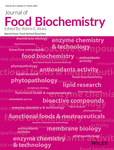Taurochenodeoxycholic acid inhibits the proliferation and invasion of gastric cancer and induces its apoptosis
[Corrections added on October 22, 2021, after first online publication: Liming Xia's and Dongwei Zhang's affiliation has been corrected to Department of Oncology, The First Affiliated Hospital of Anhui University of Chinese Medicine, Hefei, China. The address for correspondence has been updated accordingly.]
Abstract
Taurochenodeoxycholic acid (TCDCA) is the principal ingredient of Compound Shougong Powder. Despite traditional Chinese medicine (TCM) research demonstrates that Compound Shougong Powder can restrict tumor growth, whether TCDCA exerts a role in suppressing cancer as the major ingredient of Compound Shougong Powder remains unknown. This study aims to clarify the regulatory mechanism of TCDCA on gastric cancer. Gastric cancer cells SGC-7901 were cultured to investigate the effects of TCDCA on proliferation and apoptosis. Furthermore, a subcutaneously implanted tumor model was established using SGC-7901 cells in BALB/C nude mice and tumor volume was measured under low and high dose treatment of TCDCA. Cell proliferation, apoptosis, and invasion were subjected to 3-(4,5)-dimethylthiahiazo (-z-y1)-3,5-di-phenytetrazoliumromide (MTT) assay, flow cytometry, and transwell assay. Differentially expressed genes were screened by transcriptome sequencing. Nude mouse tumorigenicity assay was initiated to identify the effect of TCDCA on both tumor volume and weight, and the expression of candidate genes screened by transcriptome sequencing was determined by real-time fluorescence quantification (qPCR) and Western blot. The experiments revealed that TCDCA could significantly inhibit the proliferation and invasion of gastric cancer cells and induce apoptosis of these cells. Meanwhile, test findings via in vivo indicated that TCDCA severely diminished the volume and weight of tumors. This study first demonstrated that TCDCA inhibited the proliferation and invasion of gastric cancer and induced apoptosis, which is expected to serve as an experimental basis for the application of TCM in tumor therapeutic options.
Practical applications
Through this study, the inhibitory effect of Taurochenodeoxycholic acid on gastric cancer can be clarified, which provides a new research basis for the application of traditional Chinese medicine (TCM) and TCM monomer in cancer. In addition, this study can further promote the research and application of Chinese traditional medicine, which has important application value and economic benefits.
CONFLICT OF INTEREST
The authors declared that they have no conflict of interest.
Open Research
DATA AVAILABILITY STATEMENT
The analyzed data sets generated during the study are available from the corresponding author on request.




